- Products
- Pricing
- Solutions
- Partners
- About US
Customers are still more inclined to contact customer support even in our digital world. This is a crucial feature in several of the most well-known software for call centers. It’s easy to speak via the phone to people you know and creates trust between the customer and the agents. While phone support is an excellent way to assist customers, it’s also the longest-running and most cost-effective support channel. It is essential to provide top-quality customer support via phone. To accomplish this, you’ll need software for call centers that will allow your staff to perform their best. Software for call centers that works most effective in helping you direct calls to the appropriate agents and provide additional information to your employees. It also aids in the implementation of an omnichannel strategy.
Software for call centers can be classified into these categories based on the way it is used and the way it is used.
So, What software call centers use? It doesn’t matter if you have a staff of ten or hundreds, selecting the best tools to build your call center is essential. This article will cover the most popular features and top-selling software for call centers.
Table of Contents:
Software that lets companies manage large volumes of inbound and outbound calls is known as call center software. Software for call centers can be used to direct calls, gather information about callers and trigger prerecorded FAQ responses and redirect customers to different channels.
Call center phones allow you to collect data from callers as well as push and pull data to other systems, and create call flow according to the business rules. The call center system will require customers to provide their details when they call your company.
The program will compare this information to the existing record of the customer in CRM. The record will then be displayed to the agent who is handling the call to offer personal service.
Contact center software can be utilized by any company that receives lots of calls, either incoming or outgoing, to enhance their customer service and decrease operating expenses. Automating the majority or all of the processes for handling calls can reduce the chance of human error, and drastically reduce the chance of error.
There are many different industries that employ software for call centers. Software for call centers can be employed by businesses that operate in these industries such as health care, financial services, and online commerce. A lot of companies in these fields don’t use the software for call centers. It’s all about the number of calls your business receives.
Your requirements will determine which software for call centers is the best fit for your needs. Based on the way you utilize the software, each one has its pros and drawbacks. Create a list of the features you want to have in order to help you determine the best tool for you. Next, you should focus on the best options.
It is likely that you will be supporting customers through other channels when looking for software for call centers. It is important to consider the way your new call center software can work with other channels of communication.
HubSpot found that customers tend to be less likely to experience issues with customer service, and this improves efficiency on the front line. Calls that are received must be recorded in the help desk. This allows agents to follow up via email. This feature allows everyone on your team to understand the context of interactions with customers regardless of channel. This will ensure that your customers get the same experience no matter what platform they use to interact with.
How can customers be connected quickly to the appropriate person when they contact your company?
It doesn’t matter if the software supports automated call routing. But, clients may require one of the departments from a variety of choices. Knowing the process of call routing is crucial. It is possible to update multiple systems simultaneously, so you could change your workflow in the trial phase.
Many customers find it difficult to communicate their issue to multiple support representatives. Additionally, they must give a brief summary of previous interactions.
Agents are able to provide more efficient assistance if they know more about the person calling. Agents are able to quickly reference previous interactions with customers, which can help avoid repeat calls. Agents can look at patterns in the use of products to ensure that customers don’t have to call them back again.
CTI pop-ups are an effective method for call center tools to give information. They identify users by their phone number and display previous interactions via the browser. It is essential to know the way in which the program you are analysing logs calls and connects to different software (like CRM) and, to give your employees enough information.
Cloud-based call centers that utilize cloud networks will require an online system that connects to their databases online. The Voice over Internet Protocol (VoIP) is a cloud-based telephone system that makes use of the internet for calling instead of calling using a phone line.
While this service is typically provided by a third-party provider, it’s usually less expensive to set up and maintain than traditional landlines. VoIP doesn’t require any hardware installed on site, which means it’s not subject to the same maintenance and infrastructure expenses like traditional phone lines.
Managers need to be aware of call center metrics like the volume of calls received as well as trends and efficiency of agents to ensure an efficient call center. If you don’t know how your team manages traffic fluctuations it can be difficult to manage and plan your schedule. Reporting is an excellent method to pinpoint the most frequent issues customers have to address, identify the gaps in your support coverage or highlight training opportunities.
Software for call centers can be utilized to provide more than just customer support. If you provide proactive customer service agents may be called out to make calls. The software for your call center could be utilized by sales teams to call potential customers.
Software that lets agents make calls outgoing to the contact center of your choice is a great option.
Be aware of the cost per call and for the usage of the software. It could cost you more per minute that you use the phone, based on how your program assigns your numbers. Before you sign up for new lines, ensure you are aware of what’s included in the package and how much each minute is going to cost.
Customers can talk to an automated voice system via interactive voice responses before they contact your support team. While your customer might not be a fan of speaking to a machine, they are able to resolve their issues or provide basic details to assist your support team to serve them better.
An IVR feature can assist you to control your call volume and gather relevant information from your customers. The information that the representative requires to contact the customer is immediately available and the customer does not have to repeat the information.
A software for call centers that has the ability to script calls is an ideal choice when you’re dealing with a large number of calls relating to the same issue. A script for a call, which is like a chatbot, picks specific keywords from customers’ emails and provides directions for troubleshooting based on an answer that is common. It is possible to examine the history of the script to tailor your responses to your customers.
Call scripting is an effective tool since it lets you create common scripts that agents can use together. This will ensure that your customers receive the same experience regardless of the agent they call.
Software for call centers that is ideal for customer service can allow you to control the process of escalation and address urgent customer issues. Customers must be able, right from the time they contact for help to reach the correct person at each step. The software you use in your call center should permit agents to give vouchers, discounts or refunds through the program. This is particularly important for calls that are only one-time.
Call center solutions may be delayed based on the way they are maintained and delivered and what their function is. Certain solutions are able to be used to make outbound calls, whereas others are suited to handle inbound calls. Some are made to manage both.
Cloud-based hosted, on-premise or hosted software for call centers is also available for both outbound and calls that are inbound. Read on to learn the meaning behind this and the reason it’s important.
Methods of delivery for software include cloud-based, hosted and on-premise. Software that is hosted implies that the software provider keeps your data as well as the software system on their servers. Cloud-based software means that the software vendor keeps your information and system on their servers. It could be Google, Amazon, or other third-party vendors. Software that is stored on your server is referred to as “on-premise”.
The cost of maintenance will be contingent on the location where your call center solution is situated (or not). On-premise is the most expensive since you must purchase and manage the servers yourself. This is in addition to the expense of upgrading the software. While it’s less expensive than cloud-based software, hosted software comes with less maintenance costs and is also more affordable.
There are two different kinds of call center services that are available: inbound and outbound. Outbound call centers are employed by research teams, sales teams as well as any other company which receives lots of calls from outbound. The distinctions between them are due to the various capabilities that each type of software provides to allow calls both inbound and outbound.
Call center systems that are outbound, as an instance, have features specifically designed for calls that are outbound, like power dialers. Inbound call centers, however, include IVR as well as features which speed up calls to inbound callers.
There is no distinction between a call center and a call center. By 2022, customer support will be multichannel (or at the very minimum multichannel). Based on the old model that call center solutions provide services only through one channel (the phone) however, contact center solutions provide services throughout all channels (email telephone, email social media, email, etc.
We have also declared that customer support via phone is no longer relevant. It’s impossible to manage multiple channels using your current software for call centers.
Imagine the time you’d be able to save and the cost of staffing you could save if these three tasks were performed automatically.
All this and all of this is possible using the top software for call centers. It allows you to manage more calls with lower cost. This could mean a change in the loss or profit of certain companies.
All this and all of this is possible using the top software for call centers. It allows you to manage more calls with lower cost. This could mean a change in the loss or profit of certain companies
Customers can quickly change between channels of service when it’s simple for them to do so. Every industry has customers who have set a goal to solve issues fast every year.
Software for call centers allows agents to direct customers to the appropriate method of service. This is crucial to delivering omnichannel services.
Join either a trial or a paid plan with the vendor of call center software to have your software for call centers in operation. You can either transfer your company’s phone number to the vendor or purchase a new one. Next, you need to set up the software to meet the goals of your company’s call management. Integrating with other tools that your company uses to provide customer service could be a part of the setting.
The process of configuration and integration will differ based on the provider of the software you use for your call center.
Software for call centers provides important information and streamlines your communication, including call routing and omnichannel communications support. Software for call centers will help you monitor the duration of calls, evaluate negative and positive interactions with customers, and determine agents that are performing well or require more training. They are among the best software for call center firms.
Small and medium-sized companies can easily enjoy a top-quality call center experience that is enterprise-level using the top software for call centers. Cloud-based phone systems are now affordable and easily accessible. This lets you simplify all communications with staff and customers.
Software is the engine behind it This means there’s no need to purchase equipment or create your own call center. It could also operate from the telephone system in your company and all communications will be handled with the same program and phone. The most effective solutions for call centers are accessible to employees who work from home.
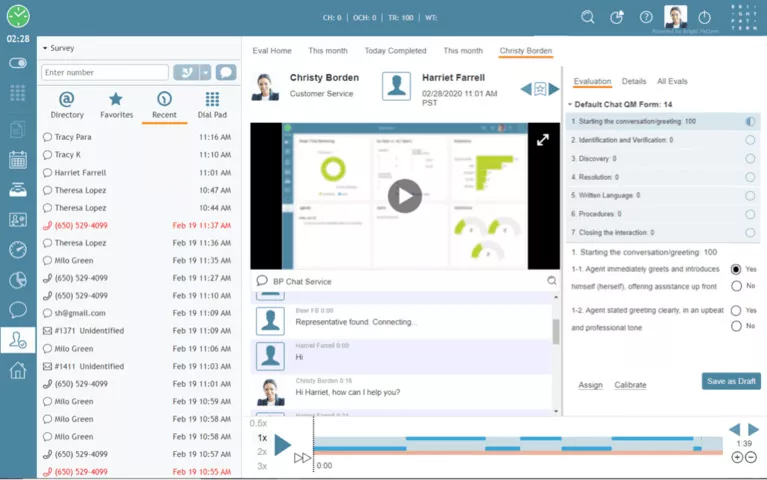
Bright Pattern’s software has the distinction of being natively built from the beginning to allow seamless communication across all channels. Based on the cloud and being full omnichannel, Bright Pattern is one of the easiest-to-implement, yet most advanced solutions on the market for businesses that want to connect with customers on a variety of different channels, including voice, email, chat, bots, SMS, text messaging, mobile messengers, and more. Bright Pattern is an excellent solution for all businesses, from small businesses to large enterprises due to its flexibility and scalability.
Bright Pattern uses plug-and-play APIs, which allow it to easily integrate with any call center technology. Bright Pattern is able to integrate with various CRMs such as Salesforce, Microsoft Dynamics and Oracle ServiceCloud. Bright Pattern also supports natural language processing and agent assistance. Bright Pattern also offers a mobile app called Bright Pattern Mobile, which puts Bright Pattern’s software on an employee’s phone. This connects any employee to the customer journey using Bright Pattern’s new Omni Enterprise CXTM technology.
| Best for: | Pricing: |
|---|---|
|
|

HubSpot’s Service Hub and Help Desk software are both powerful, yet easy to use.
HubSpot’s help desk software that comes with Aircall is built on top of its CRM system and is linked to its sales and marketing software. This means that regardless of whom the customer contacts, the agent on the front line can get all the information they require to resolve the issue directly in front of them. Employees can enhance the customer experience by collating all of the information into one place.
HubSpot’s call center software comes with sophisticated automation tools as well as insightful reports to help your team enhance customer service. Service Hub comes with an email address shared with other users as well as live chat software, and self-service features. All of these work seamlessly with Aircall to provide support via phone. Aircall plans start at $30 per month for users.
HubSpot as well as Aircall’s cloud-based phone system can be integrated to give companies of all sizes an amazing customer experience that is seamless and seamless via various channels.
| Best for: | Pricing: |
|---|---|
|
|
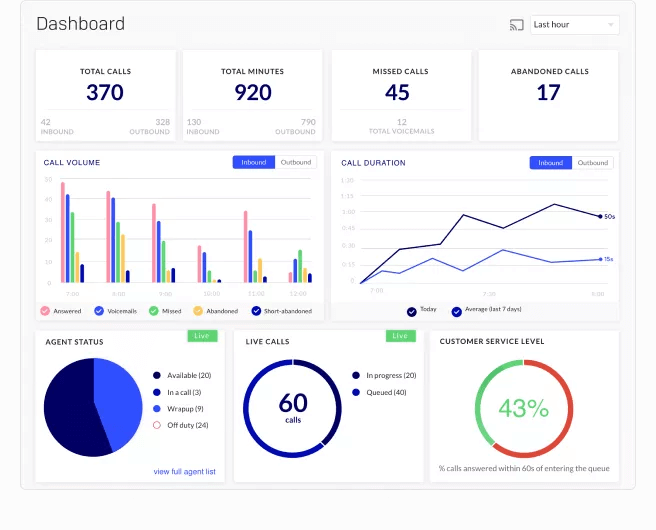
Dialpad Ai Contact Center lets users access all interactions with customers regardless of channel through one application that is accessible on any device, from any location.
Dialpad’s AI is the reason it is unique. It is able to run built-in features like sentiment analysis, ultra-accurate voice transcription, and agent coaching.
Dialpad is compatible with a variety of CX tools, including HubSpot and Salesforce which makes it simple to connect them all in one place. It only takes few minutes to create an entirely new contact center using Dialpad. Dialpad lets you add or remove agents , and manage phone numbers quicker and more efficiently and all from one location. DialPad allows your business to expand with this feature.
| Best for: | Pricing: |
|---|---|
|
|

Aircall is a cloud-based contact center that is able to transform customer service. Aircall has numerous of the most effective features, including IVR, cloud-based call, queue callback, call routing and many more. It also includes options like skill-based routing as well as call queueing.
Managers can utilize the feature of call whispering to offer suggestions to colleagues and have an immediate impression. This feature is ideal for training and customer service.
Aircall provides call center analytics which allows you to track the performance of your agents both individually and as a team.
| Best for: | Pricing: |
|---|---|
|
|
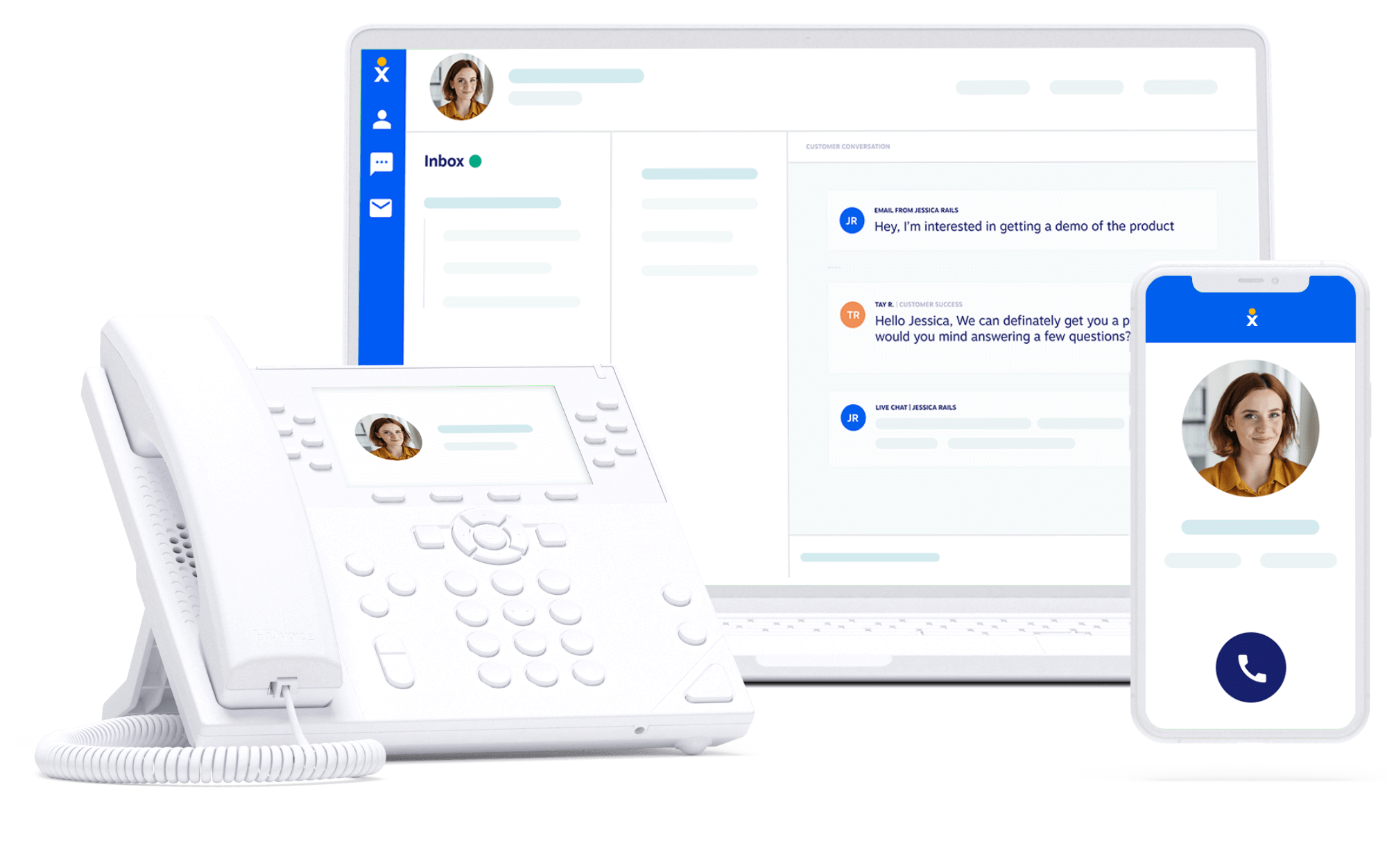
Nextiva is a simple solution that lets you communicate with more people in a shorter amount of time and with fewer agents. Nextiva provides features like IVR call routing, call routing and call queueing. It is also possible to optimize agents’ call flow and use virtual agents to streamline interactions. This can streamline the experience for callers.
| Best for: | Pricing: |
|---|---|
|
|
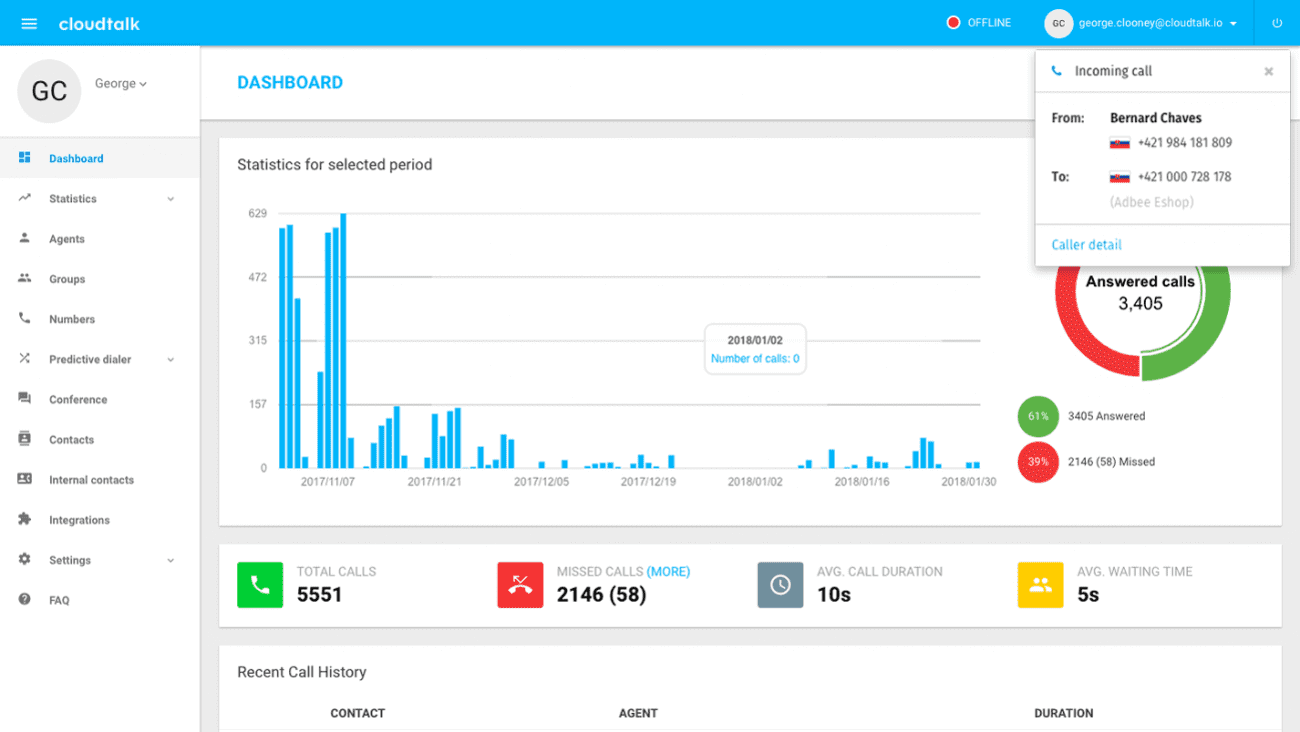
CloudTalk is an innovative call center software that gives users a variety of unique tools. CloudTalk’s feature for custom queues allows support teams to decide on which calls to route. CloudTalk forwards inbound calls to the best agents to resolve customer problems. CloudTalk removes the need for transfer calls that could cause delays in customer service.
CloudTalk provides personalized voicemails that can be tailored to meet your specific needs. Customers are able to leave voicemails to agents to reply to in the future if you are not in the office. Customers do not have to sit for long in a hold line while waiting for their team to reply. Customers can leave a message , and go back to work while they wait for you to come up with an answer.
| Best for: | Pricing: |
|---|---|
|
|
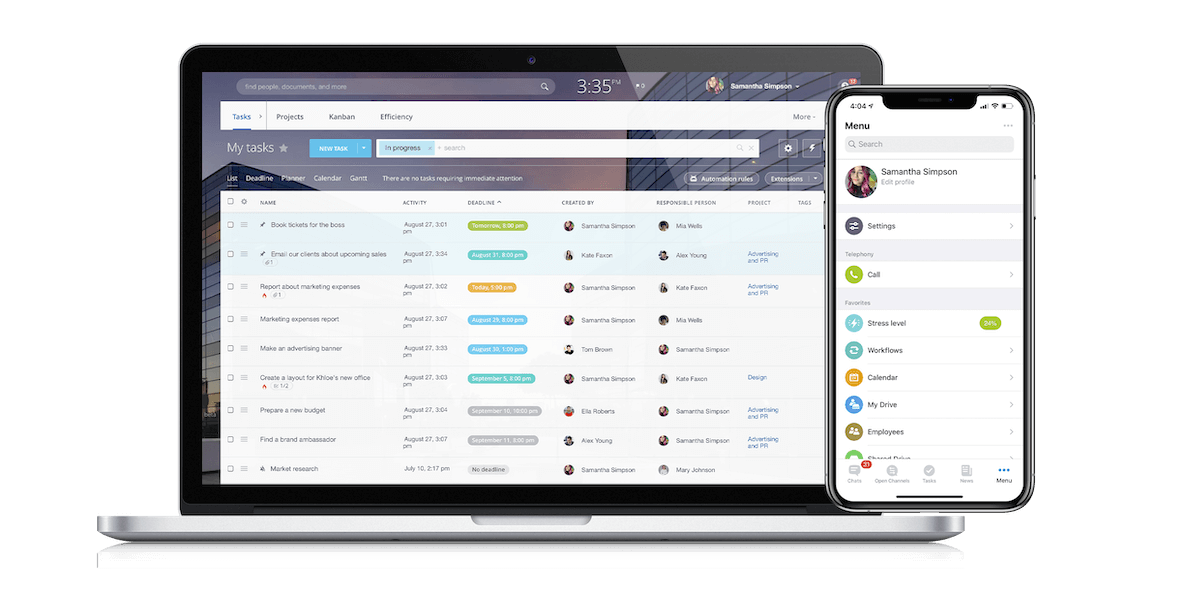
Bitrix24 is an online contact center that is centered around your tasks list. It assists teams to work together to accomplish their goals. Bitrix24 provides a range of customer service channels , including rental telephone lines as well as live chat. These channels are all integrated with Bitrix24’s task management software and CRM. Bitrix24 provides a hosted solution for businesses that require or want their own storage of data.
| Best for: | Pricing: |
|---|---|
|
|
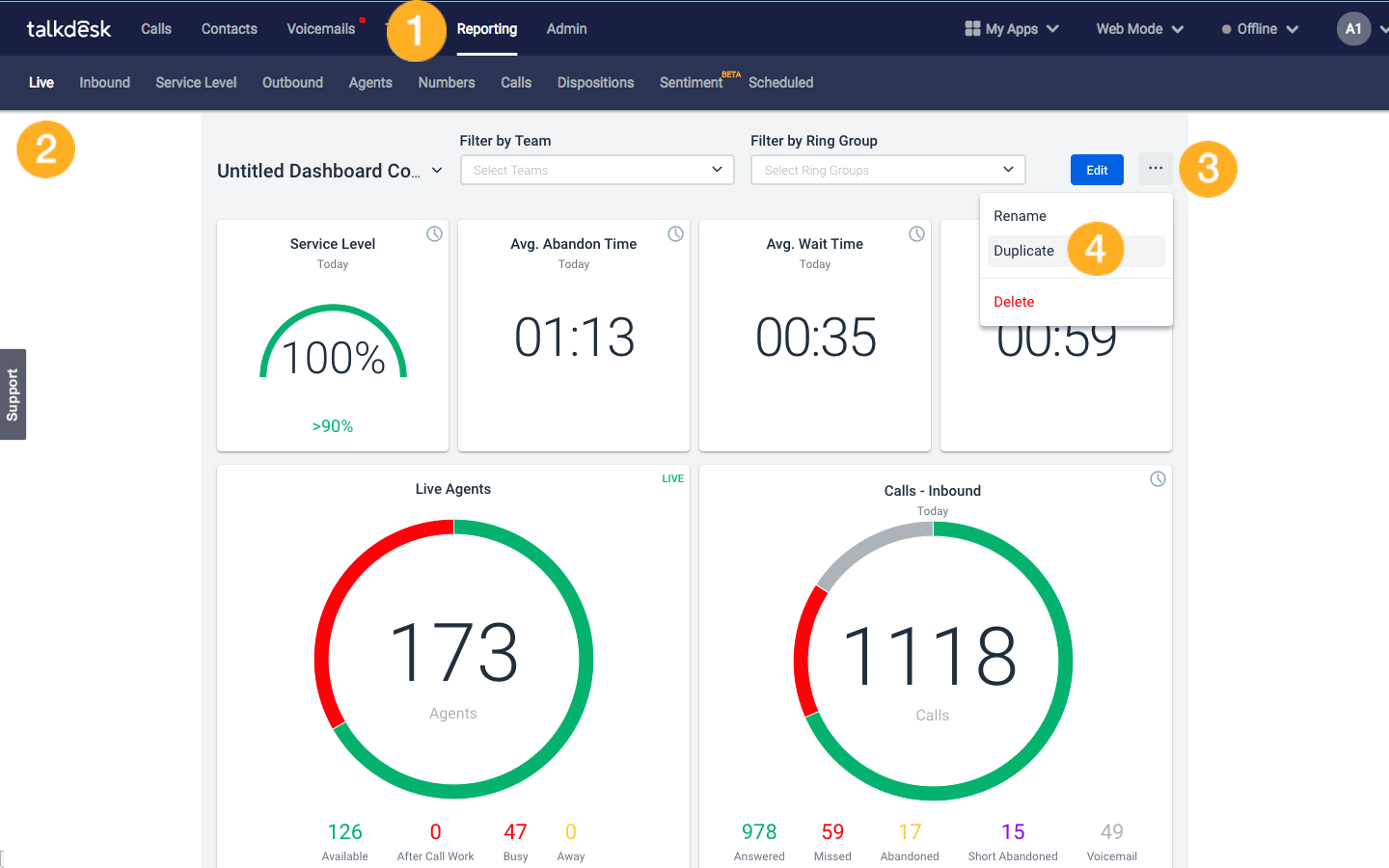
TalkDesk is a powerful call center software that businesses can benefit from. It comes with features that enable large teams to manage their support phone. TalkDesk provides teams with everything they require to deliver continuous customer service on a large scale, such as the management of workforce and specific security features.
| Best for: | Pricing: |
|---|---|
|
|
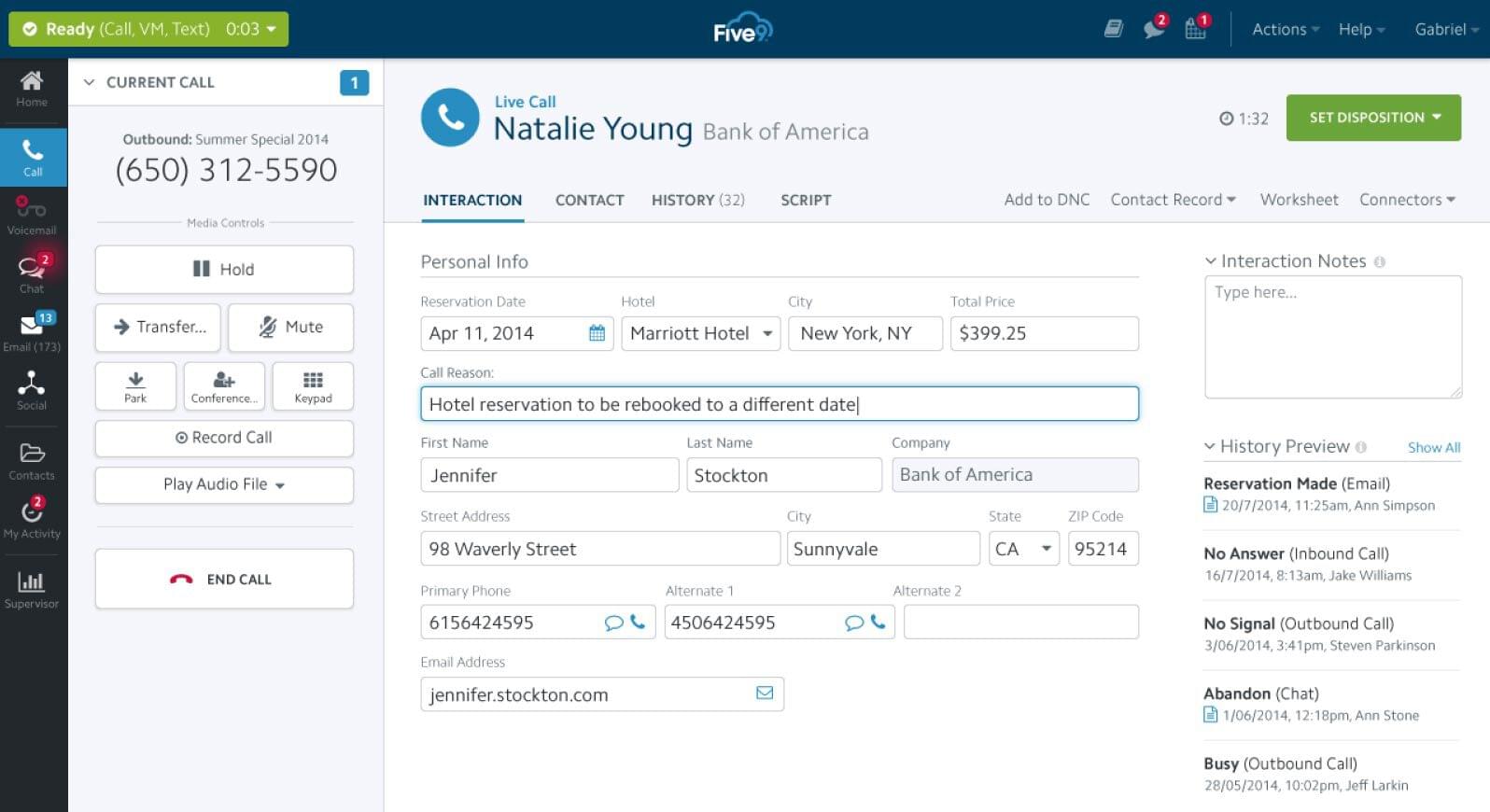
Five9 has everything you require to set up a customer service or sales call center. Five9 is a tool designed for enterprises that offers predictive dialing and workforce management tools as well as CTI screen pops. This can help agents provide better customer service and increase sales.
| Best for: | Pricing: |
|---|---|
|
|
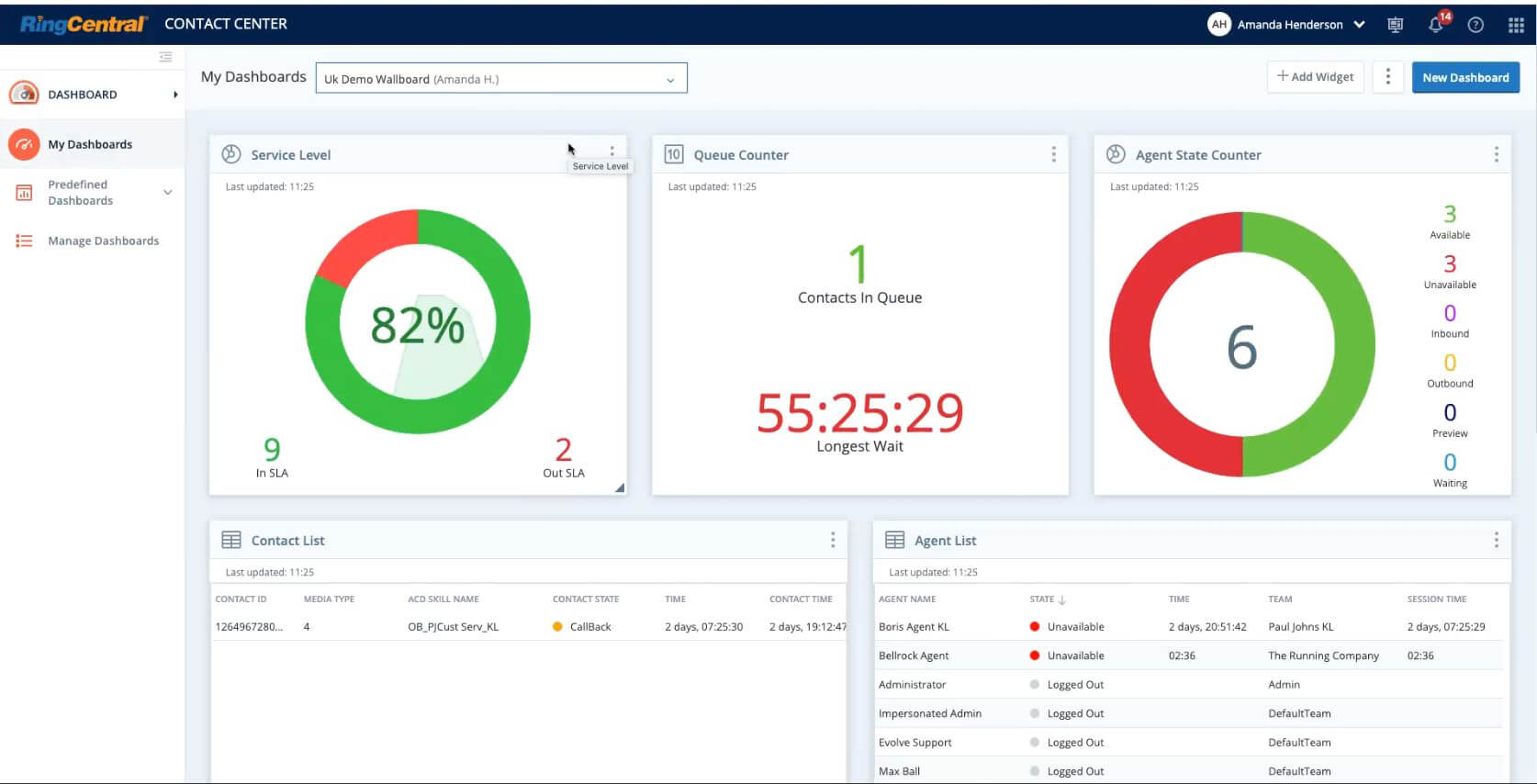
RingCentral is a cloud-based phone system, a flexible one that can be used by both mobile and desktop users. RingCentral’s most distinctive feature is “RingOut,” which allows one-touch call from any mobile, computer or any other device that is internet-connected. RingCentral is also equipped with powerful call delegate features as well as answering rules to ensure that calls are routed to the right individual.
| Best for: | Pricing: |
|---|---|
|
|
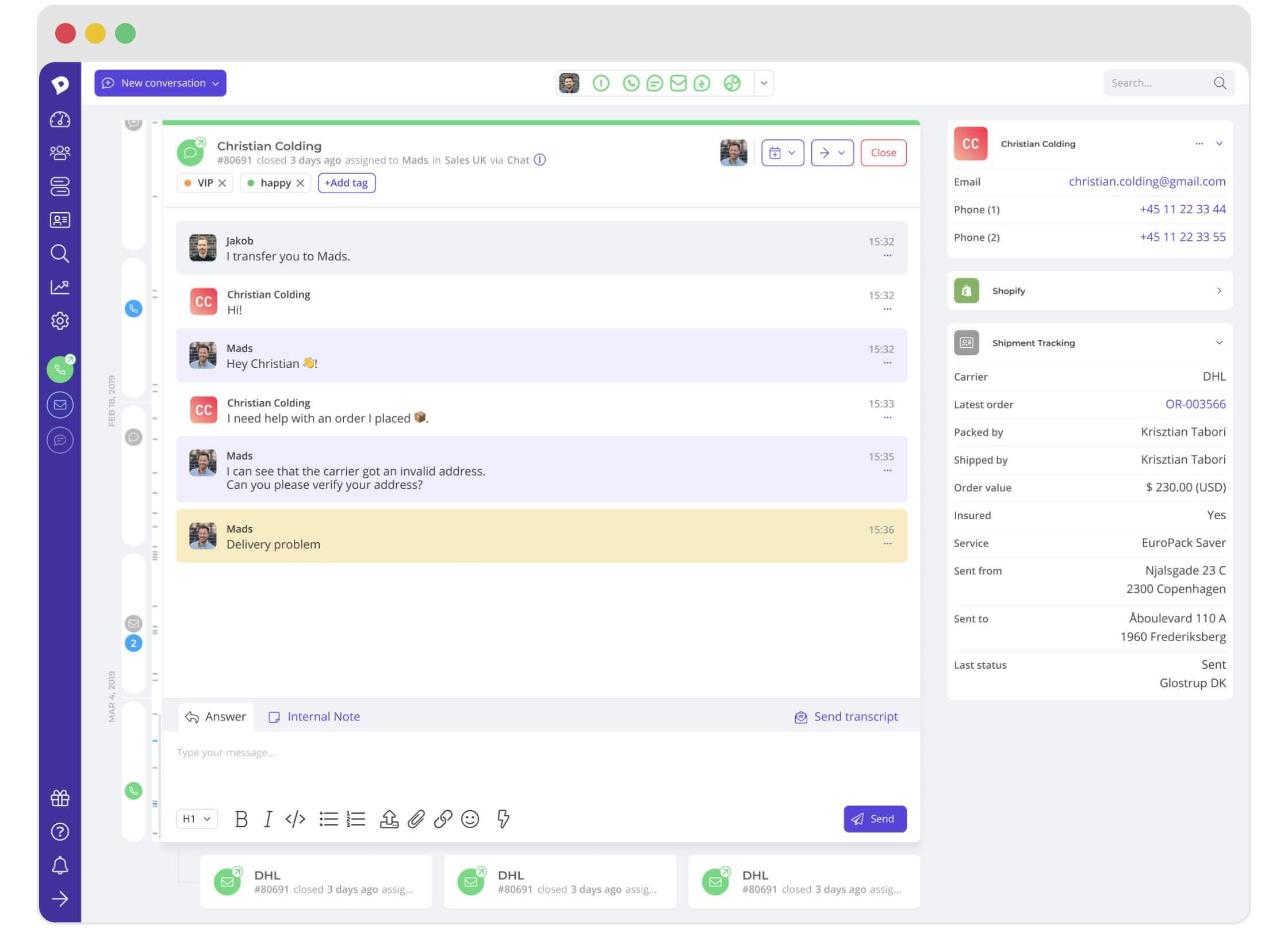
Dixa is an online contact center that can be created in only two clicks, is entirely online. Dixa is a sophisticated solution that includes advanced call distribution techniques and caller recognition is a cutting-edge solution that enhances the user experience as well as the experience of the administrator of the contact center.
| Best for: | Pricing: |
|---|---|
|
|
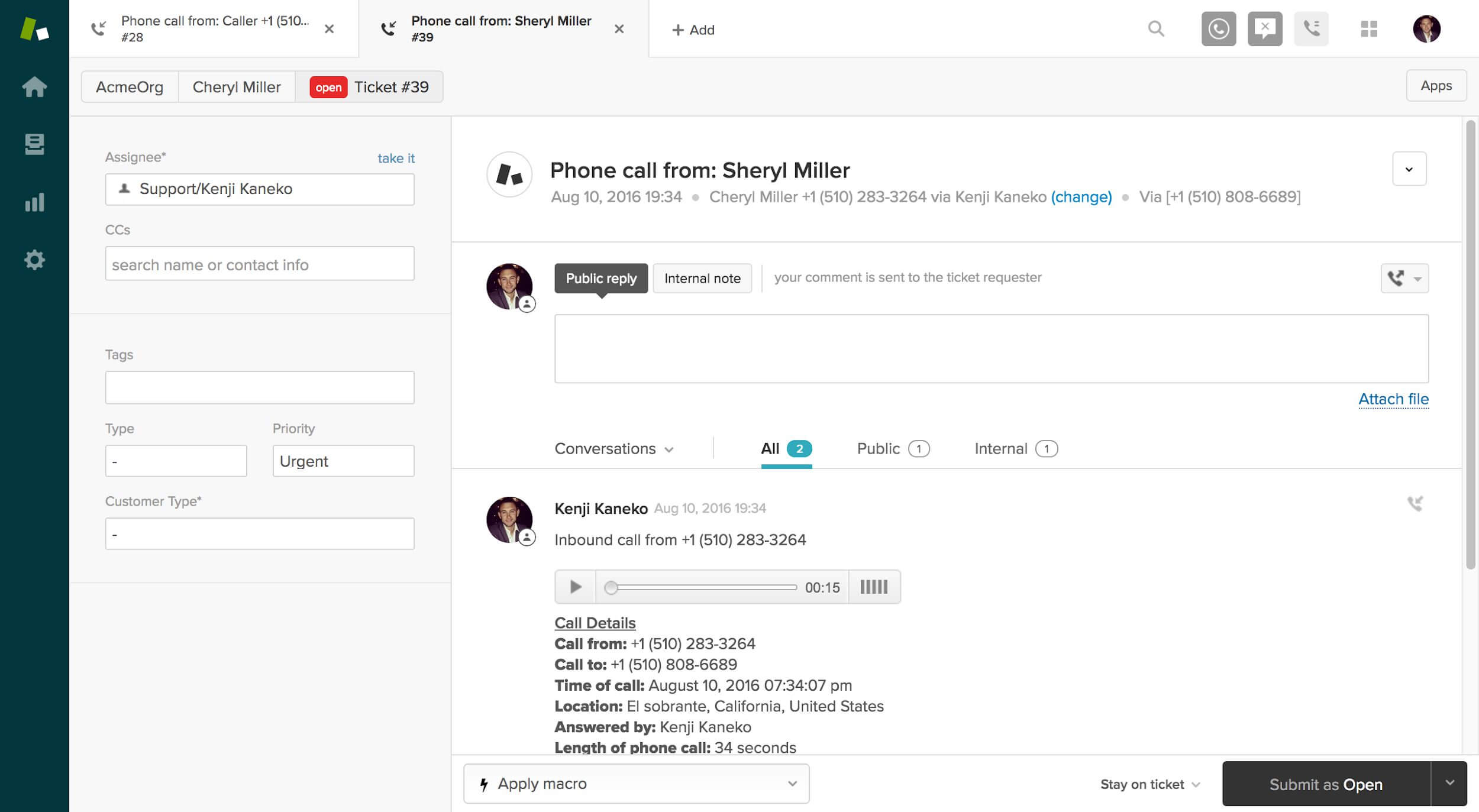
Zendesk is an online call center which is one of the biggest customer support platforms. It provides a solution for businesses of all sizes. Zendesk lets agents automatically create tickets and make use of Zendesk’s help desk capabilities to help customers through every way.
| Best for: | Pricing: |
|---|---|
|
|
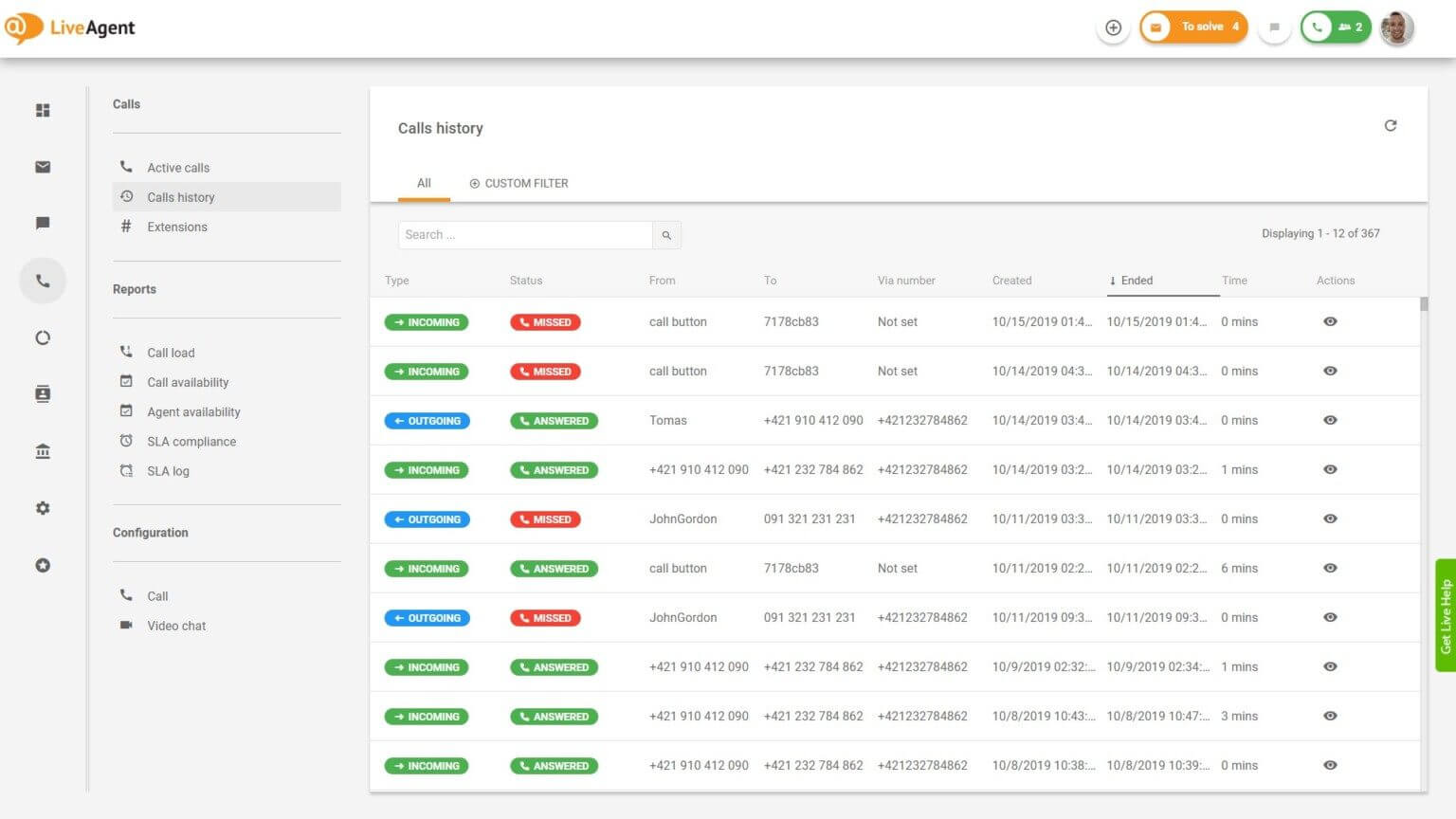
LiveAgent’s call center solution is directly integrated in their help desk that is multichannel. This lets you assist customers through any method you want to use. LiveAgent is an affordable solution for medium and small-sized businesses that rely on phone support.
| Best for: | Pricing: |
|---|---|
|
|
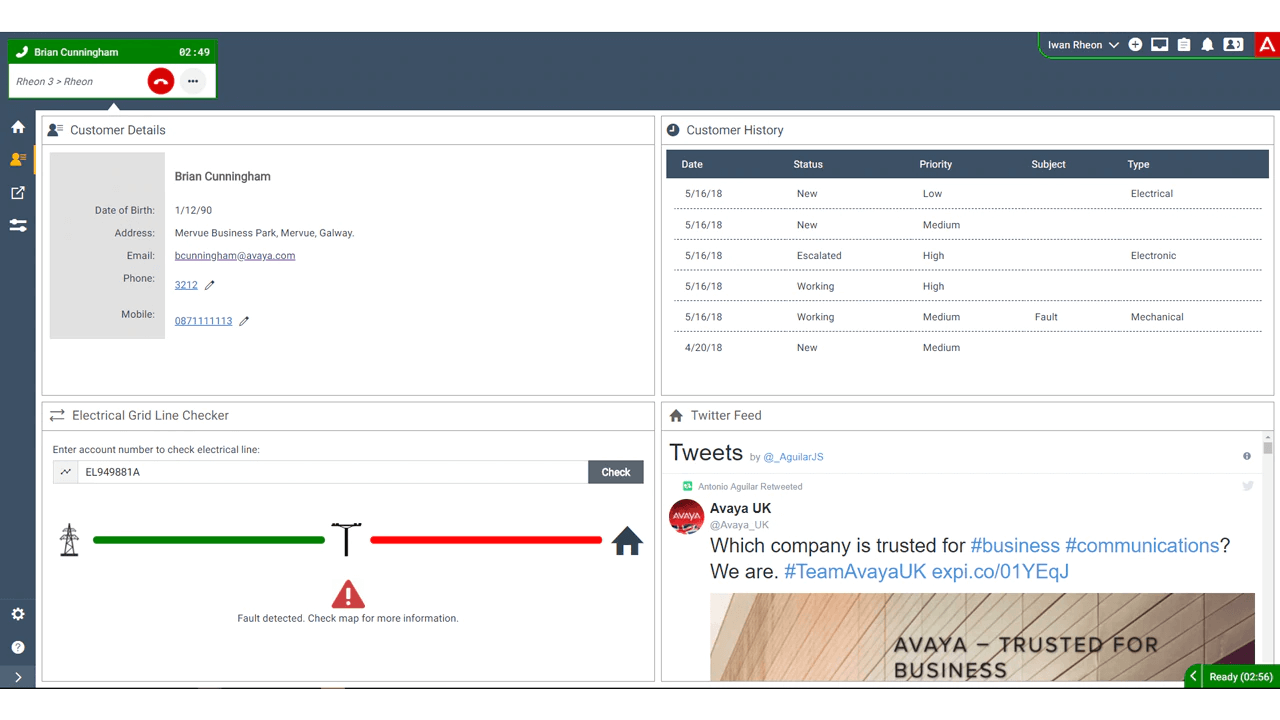
According to the Avaya website, more than 90 percent of Fortune 100 companies use Avaya products to manage their contact centers. Avaya has been a leader in the industry for a long time. The standard platform from Avaya comes with many advanced features that guarantee you an enterprise-grade product.
| Best for: | Pricing: |
|---|---|
|
|
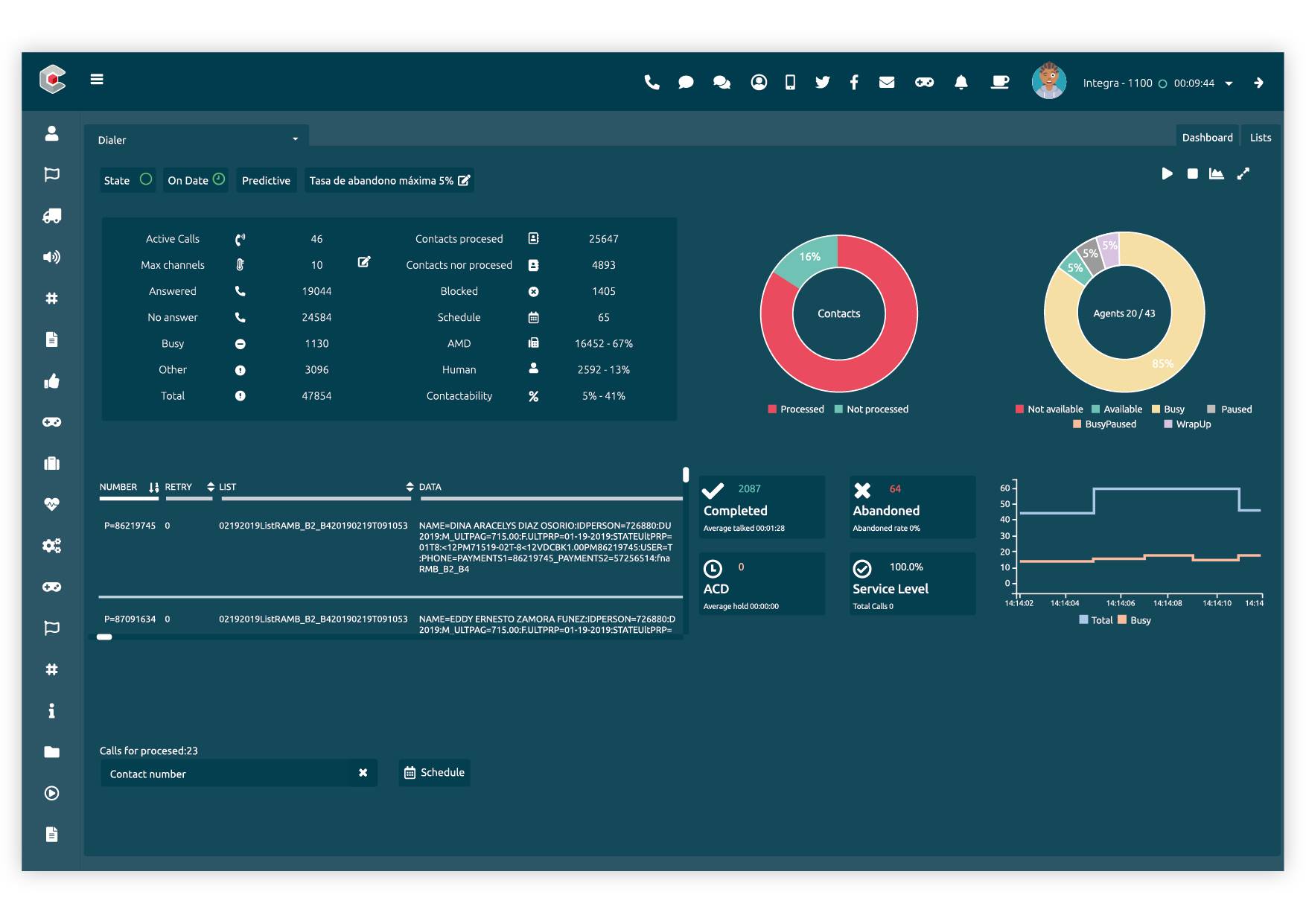
UContact offers an interactive voice response system (or IVR) which lets you as well as your clients to take less calls. IVRs allow customers to resolve their issues automatically. IVR lets customers call your support line right away and get a prompt response instead of waiting for a hold or waiting for a representative to reach them. The digital assistant offers an array of options for the customer, and after that connects them with a human agent or resolves the issue by itself.
| Best for: | Pricing: |
|---|---|
|
|
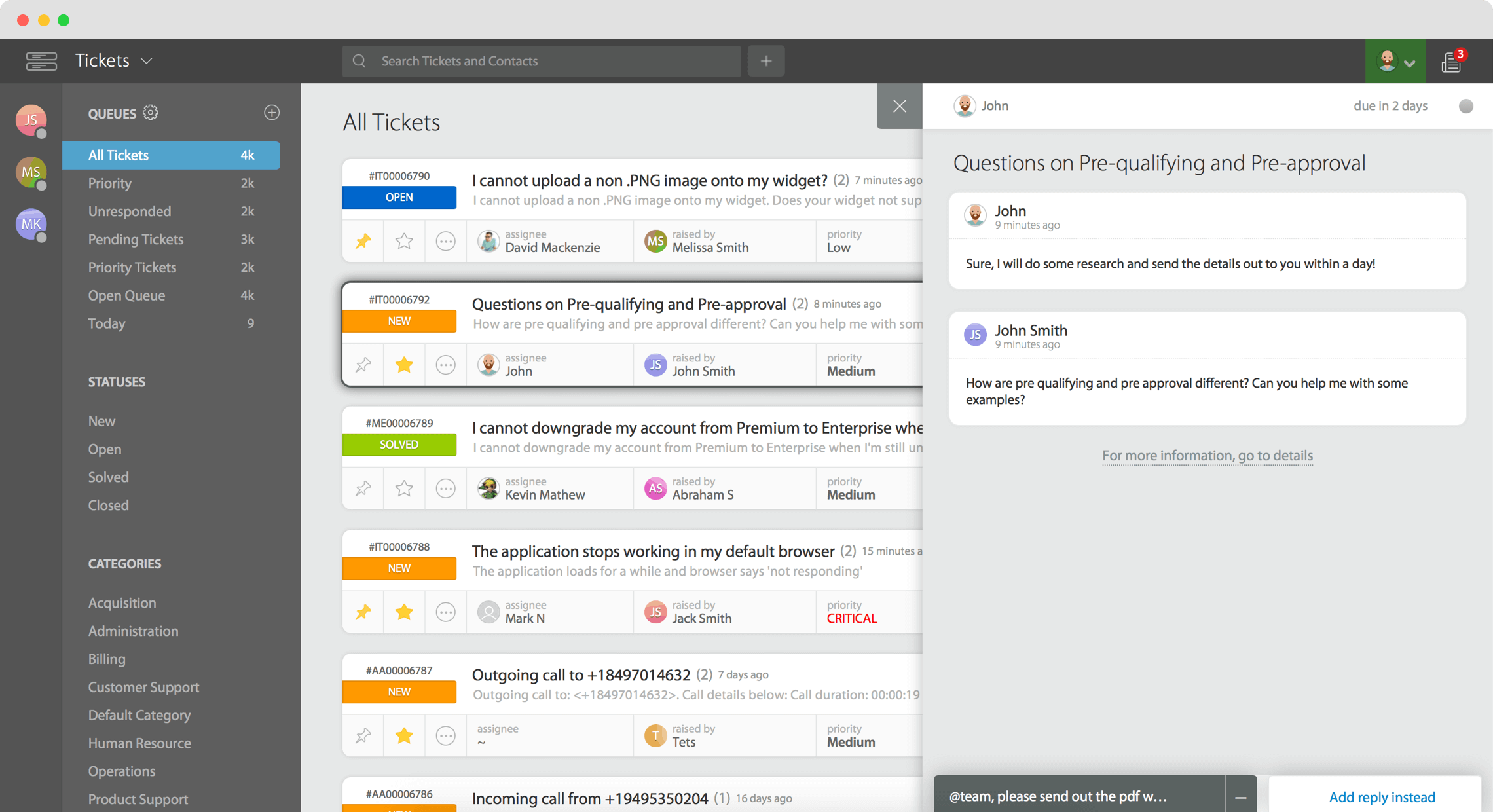
HappyFox is a help desk software, provides strong capabilities for call centers. It is integrated with Aircall, RingCentral and RingCentral to record calls automatically and assign tickets to the system. It also includes scripting for calls custom queues for tickets and Service Level Agreement (SLA) Management.
| Best for: | Pricing: |
|---|---|
|
|
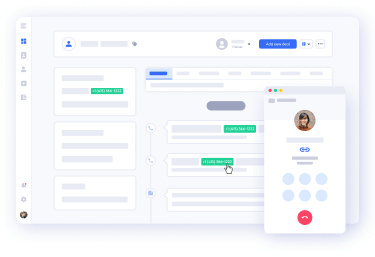
Channels lets you answer your customers’ calls using its mobile application. Channels are able to be integrated with other programs in your stack of technology, such as HubSpot and Zapier.
Channels is a great option for small-sized businesses who are just beginning to set up an operation as a call center.
| Best for: | Pricing: |
|---|---|
|
|
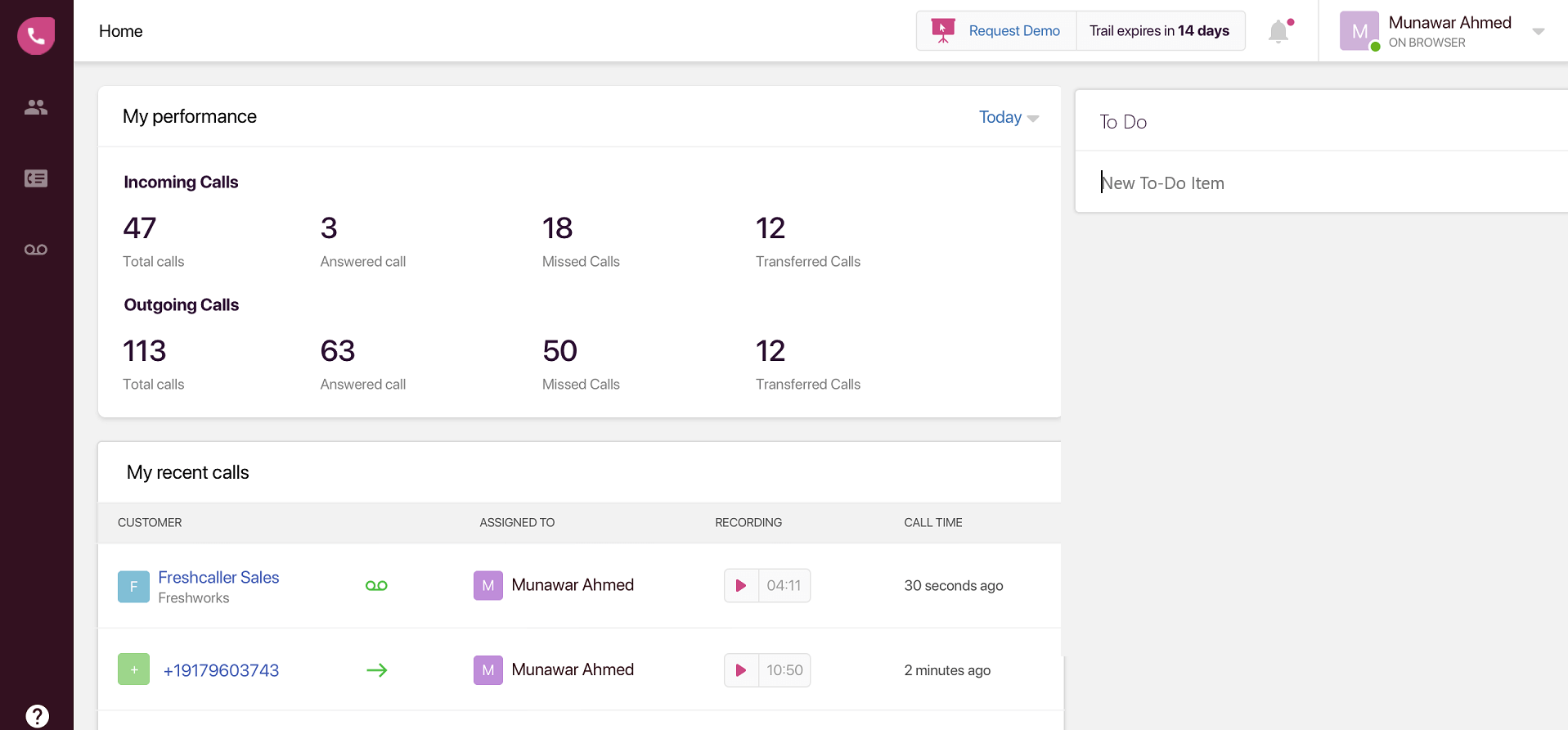
Freshcaller is just one of the numerous SaaS services that are offered by Freshwork The company also provides HR and IT software solutions for businesses.
Freshcaller, a phone system designed for international companies allows you to make it simple and effortless to handle customer service call. Freshcaller lets you create an interactive voice response system that has different levels, respond to calls using the Freshcaller mobile app and also automate the distribution of calls.
| Best for: | Pricing: |
|---|---|
|
|
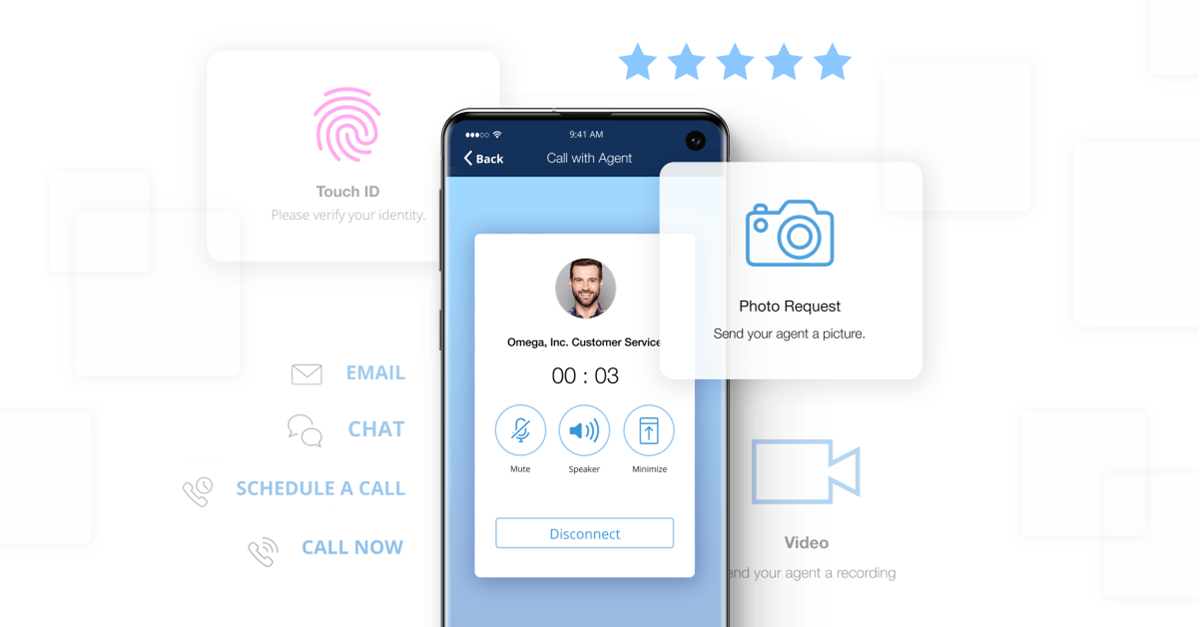
UJET’s powerful Contact Center Platform integrates seamlessly with your CRM. This lets you connect and understand the customer experience from your mobile device.
SmartActions is among UJET’s most well-known features. It allows users to upload videos and photos to an agent on the spot to solve the issue.
Agents are also able to authenticate customers using the existing pins, passcodes, fingerprints, or fingerprints, or even Face ID technology. UJET adheres to strict privacy standards of the industry. All information about customers is kept in your CRM or a private database.
| Best for: | Pricing: |
|---|---|
|
|

Aloware is a contact center software that is able to be integrated with any CRM system to allow unlimited texting and calling. Aloware’s cloud-based telephone system, coupled with Local Presence, allows SMEs to communicate with their customers wirelessly wherever they are. You can set up the phone lines as well as ring groups, inboxes and ring groups to satisfy every business requirement.
Aloware comes with the tools to power dial as well as SMS broadcasting , as and automated contact management. The live dashboard of Aloware allows managers to monitor their teams remotely and monitor calls. Managers are also able to view the volume of calls, durations, and queues to help efficiently manage their workday.
| Best for: | Pricing: |
|---|---|
|
|
The best call center software solutions can help you create an effective customer service strategy. They can also assist you to offer support that turns unhappy customers to brand ambassadors.
Modern customers expect top-quality customer service across every channel, including live chat, email and even telephone. This could cause confusion for your support staff particularly if the channels aren’t integrated with each other. The team is now able to unify their omnichannel channels to one platform using software for call centers. This will lead to improved customer service and happier frontline employees.
Three of the most important questions that can help you select the best software for your contact center team:
A shirt that is too big isn’t the ideal choice when a medium-sized shirt is better. Software for contact centers is similar. The most effective contact center software isn’t the one with the greatest capabilities. It’s the one that is suited to your team best.
It’s also crucial to realize that your team could alter. The volume of calls you receive could increase and new products could require different types of service and your team could grow. These variables will affect the best software for your company and you. It is essential to ensure that your software is up to date with the current requirements.
While cost is a major factor, you should not forget the benefits of the software. Contact center software is an excellent option to cut costs and offer better services than the price.
It’s the most effective way to determine the amount of return you can expect from a contact center service. If the vendor you choose doesn’t offer an extended trial period it is possible to choose an annual plan. This allows you to not be obligated to a full year. This lets you assess the financial effects of the contact center software on your company.
It’s enjoyable to think of the various tasks your software could accomplish. It’s difficult to convince your supervisors and coworkers to accept your plan. It’s difficult to gain acceptance from your managers, colleagues and even executives. It is essential to demonstrate the benefits of the software. Your coworkers will be more likely to purchase the program if they are able to understand the value immediately.
Getting executive approval is crucial for the successful implementation of any software. It is crucial to select outbound contact center software that has shorter time-to-value (TTV).
Three of the most important questions that can help you select the best software for your contact center team:
Outbound call center services are telemarketing software that permit agents to utilize outbound call software to connect with leads and customers. The software is able to utilize customer information to allow agents to cross-sell or increase sales and target their campaigns according to.
Software for inbound calls lets you control and schedule your calls that are inbound. There are hundreds of calls every day from customers who have questions or concerns, as well as other concerns based on the time of day. It is crucial to keep track of the manner in which the calls are dealt with by your staff as well as the quality of every call.
Software for inbound calls allows you to record calls, track conversations, and distribute polls through the telephone. It also allows you to create reports on the health of your call center. It is essential to automate, streamline, and control the processes and data that are not ringing when the phone is ringing. The software is able to handle inbound calls.